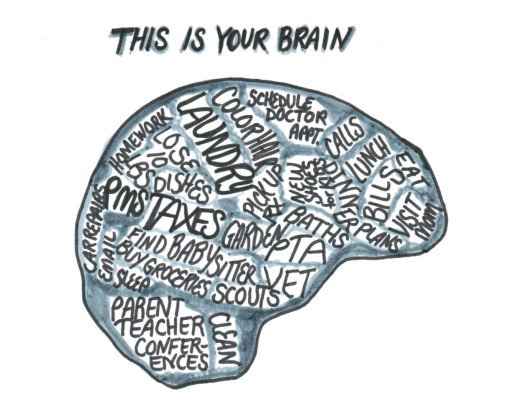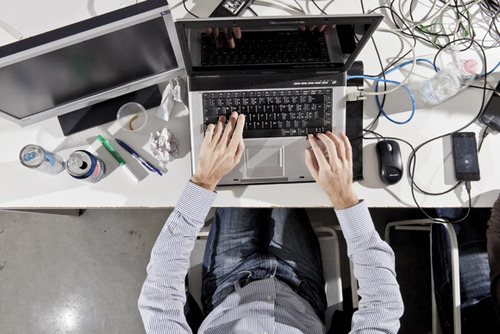 As I checked my email for the zillionth time that morning, and saw the accounts simultaneous blink ‘zero’; rushed into town to check my PO Box, only to open the little nook and reveal an empty space; looked over my timetable for the day ahead and week ahead, realizing that reports were done, emails were sent, notes were complete and that no one was ‘waiting’ on me … I realized that this behvaiour of insane productivity and attention to detail, one that so many people crave, has the potential to be so very detrimental to our health and wellbeing.
As I checked my email for the zillionth time that morning, and saw the accounts simultaneous blink ‘zero’; rushed into town to check my PO Box, only to open the little nook and reveal an empty space; looked over my timetable for the day ahead and week ahead, realizing that reports were done, emails were sent, notes were complete and that no one was ‘waiting’ on me … I realized that this behvaiour of insane productivity and attention to detail, one that so many people crave, has the potential to be so very detrimental to our health and wellbeing.
For the past ten years, roughly, I have firmly established behaviours and practices that foster high levels of productivity (note – I just stopped writing to check my email) and have led me to being, accurately, perceived as a ‘do-er’. I juggle quite a few commitments at a time, I run a private practice, I balance my relationships, but …
I can not switch off.
Although the ability to switch ‘on’ and to be engaged and focused and to meet deadlines, tick off ‘to do lists’ and be organized is one that I am entirely grateful for, I’m starting to see a little more of its shadow side. The checking of phone calls, texts and emails far too many times throughout the day to make sure all possible actionable things are actioned; the over planning of routes and weekends and events because we account for every possible error or oversight; the overwhelming dread when, through factors beyond our control, we are uncharacteristically late or something important slips our mind. It doesn’t take Einstein to figure out what’s the driving force behind someone like me and why, perhaps, they’re so fixated on never derailing or ‘failing’. It’s caring too much. Caring too much about what others think, of how we’re showing up in the world, of ‘failing’, of not meeting the expectations and standards that we set for ourselves.
This isn’t at all a ‘woe is me’ little wallow of a post. I’m epically grateful for my insane productive prowess and I know that this brain of mine, and how it’s wired, is 90% blessing. But this is just a post for others of you, like me, who find it increasingly difficult to unplug, switch off and be unproductive for a few hours.
Side note before we delve into some tips and tricks – ‘unproductive’ is not ‘counterproductive’. Counterproductive is an intentional derailing of productivity; being unproductive is a passive and more simplified process and is just … being. Not having an agenda, or goal list, but just enjoying the nothingness. Counter productiveness is tearing up the agenda, flipping off the goal list (or actively doing the opposite of everything on the list) and enjoying destructiveness.

THREE TIPS FOR UNPRODUCTIVITY
1 – be uncontactable (some of the time). This feels weird. But setting boundaries around the times that people can reach you (work, personal or other) is imperative to your unproductive self. 50 email checks a day is not healthy, setting aside 30min at 10am and 3pm (to catch the morning and afternoon email batches) is. Responding to every single text or notification on your phone within seconds is, generally, not healthy. Leaving your phone to go for a beach run, coming home and enjoying a glass of water, then settling in to respond, is.
2 – meditate. This isn’t me being preachy or new agey or whatever, but meditation and simple stillness fosters greater presence. It isn’t new information and it isn’t groundbreaking, but it can be lifechanging. Setting aside 10 to 20minutes (or whatever you can muster, 5 minutes is totally fine too) once or twice a day to simply sit, connect in with your breath and pause, can radically reduce your stress and anxiety. It can promote greater peace, positivity, mindfulness and presence. Don’t hesitate, just meditate, #rhyme.
3 – scrap the goal list. I have just revisited Danielle LaPorte’s The Desire Map as book number 23 for the year (… some goals stick) and I actually encountered something pretty amazing. Throughout the book, readers are encouraged to highlight and recognize their ‘core desired feelings’. These are the feelings that are at the crux of all of our decisions, goals and choices. These feelings govern much of what we choose to experience and participate in. I redid the exercises, defined my core desireds and then got to the tail end of the book when it comes to using these feelings to fuel your goals. How can a desired feeling of ‘love’ be explored in your life, for example? Maybe it’s signing up for that workshop, or signing up to a dating agency or saying ‘yes’ to that dress. But when it came to creating my ‘goals’ I drew blanks. It’s a time, now, to focus more on how I feel, and setting the intention to cultivate these feelings however I can in my day to day. Goals are the actionable tasks and to dos that we must ‘achieve’; intentions are the ways we infuse purpose and mindfulness into even the most mundane of tasks. Scrap the goals, just for a while, and opt for intentionality.
If this struck a chord with you, or you’re interested in learning more about productivity in the modern world, join me in my next read. Wisdom 2.0 is both the book title and labour of love for Soren Gordhamer. It’s his answer to the technologically saturated world that we live in and the exploration of its triumphs and pitfalls. Also this article – here – hit the nail on ze head.
Blessings and intentionality x
Leave a Reply